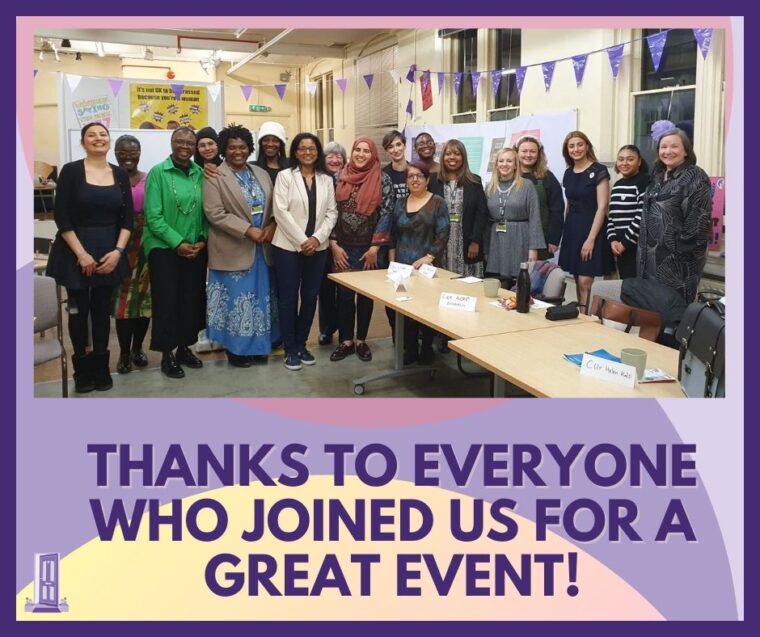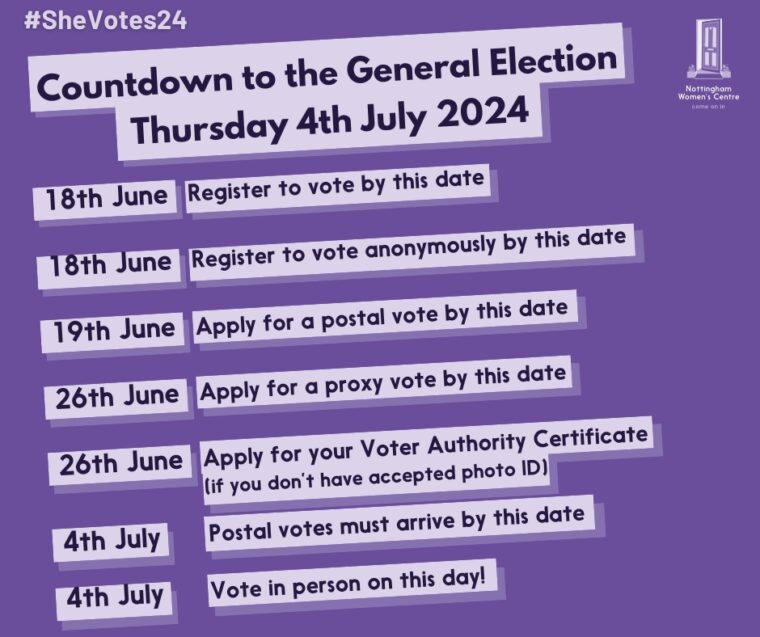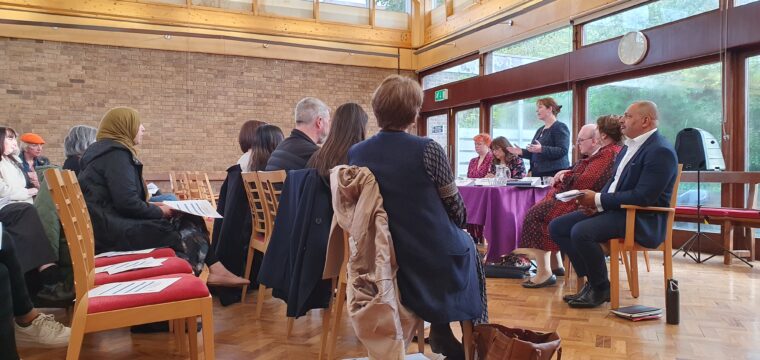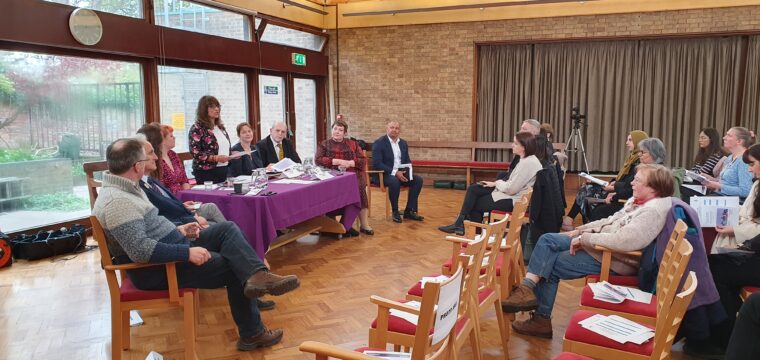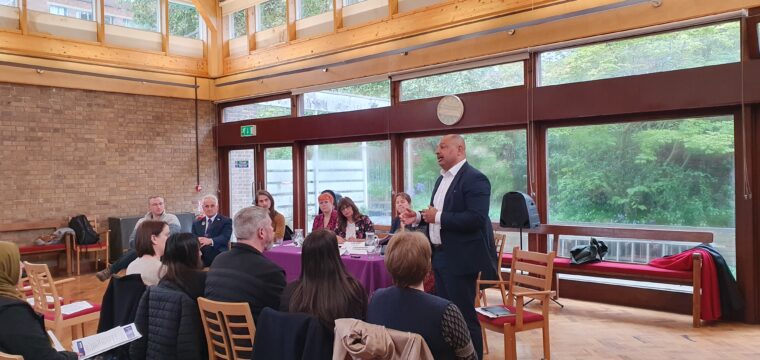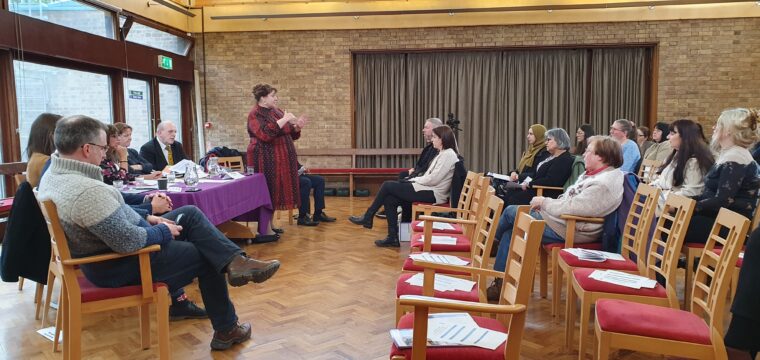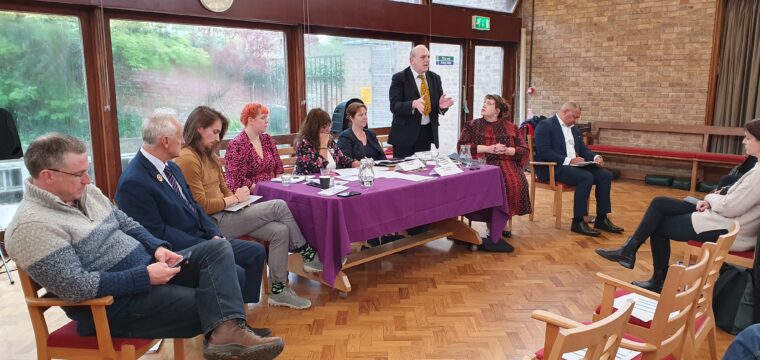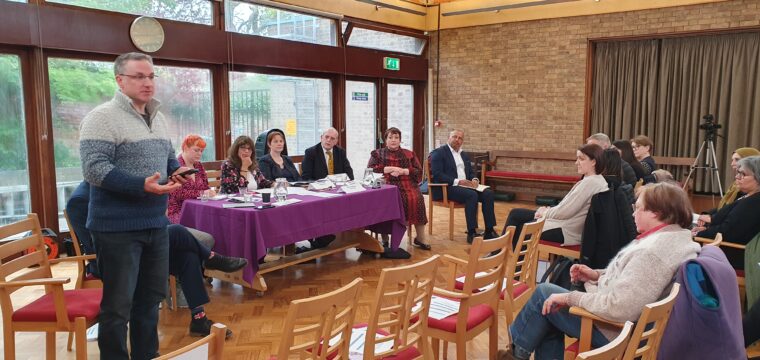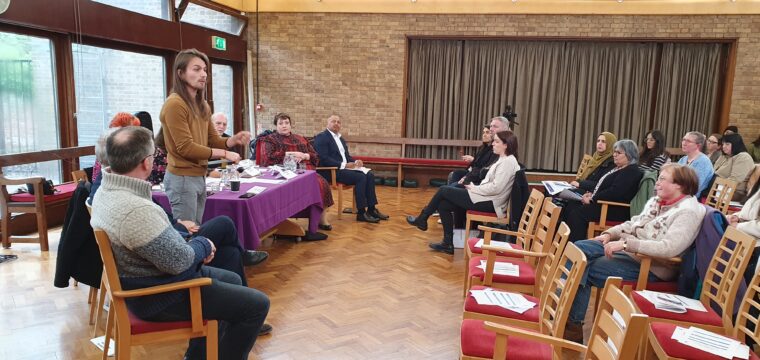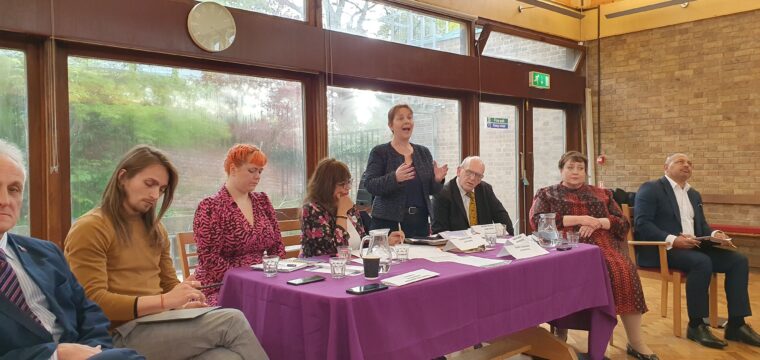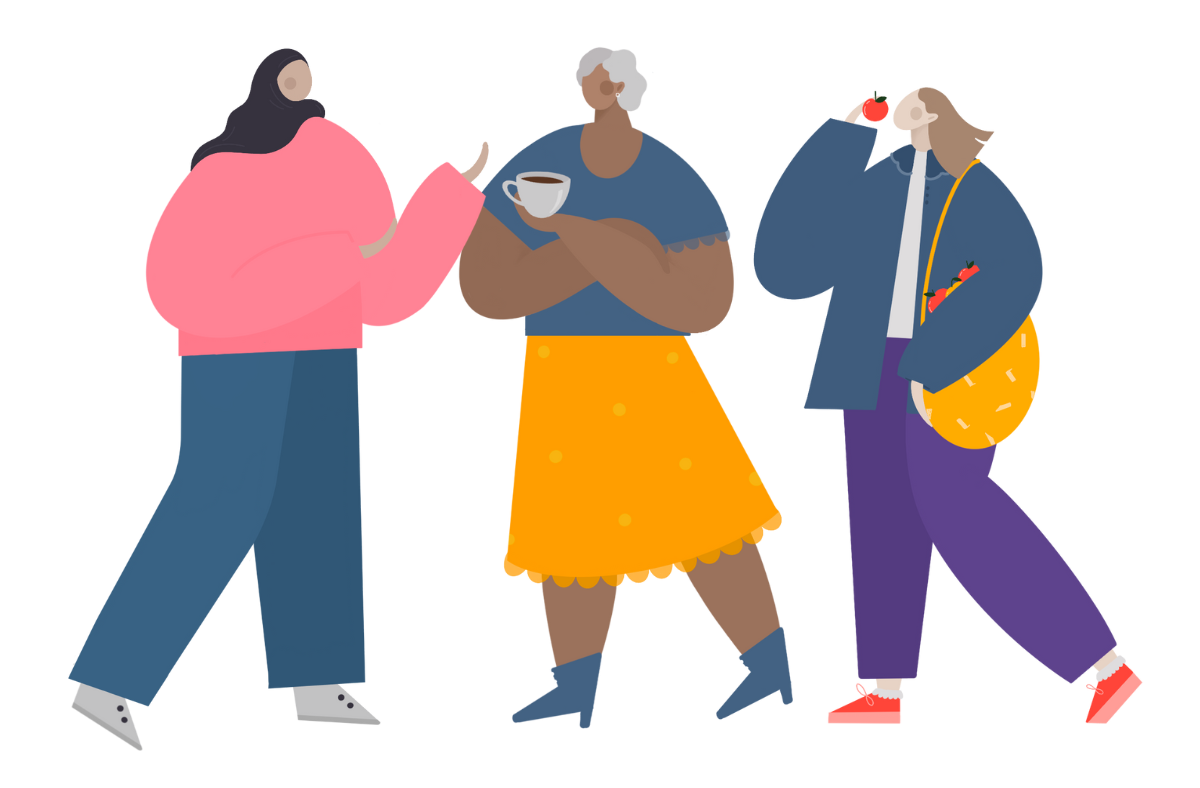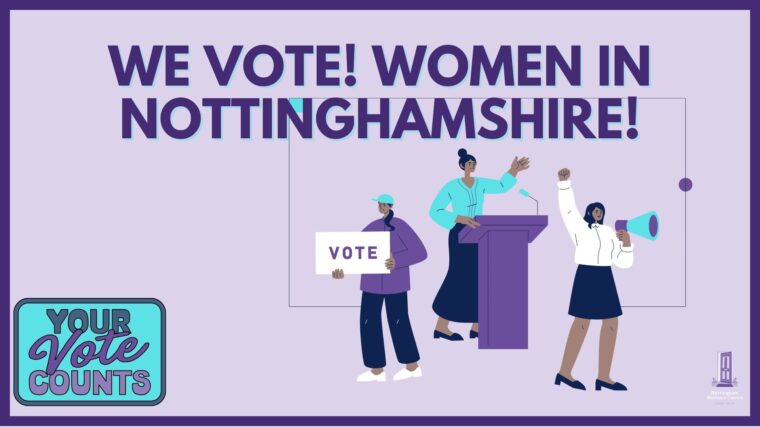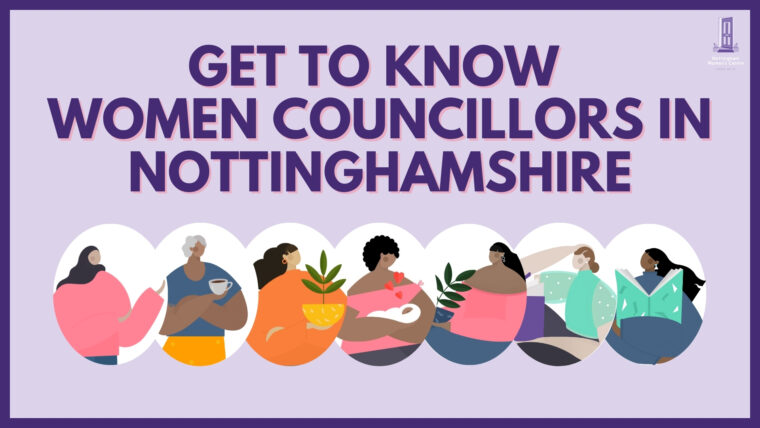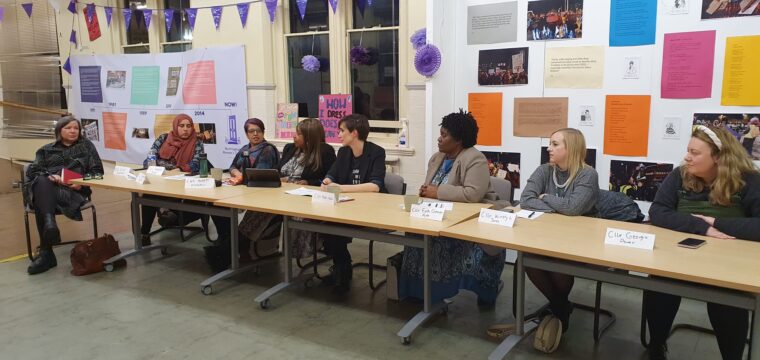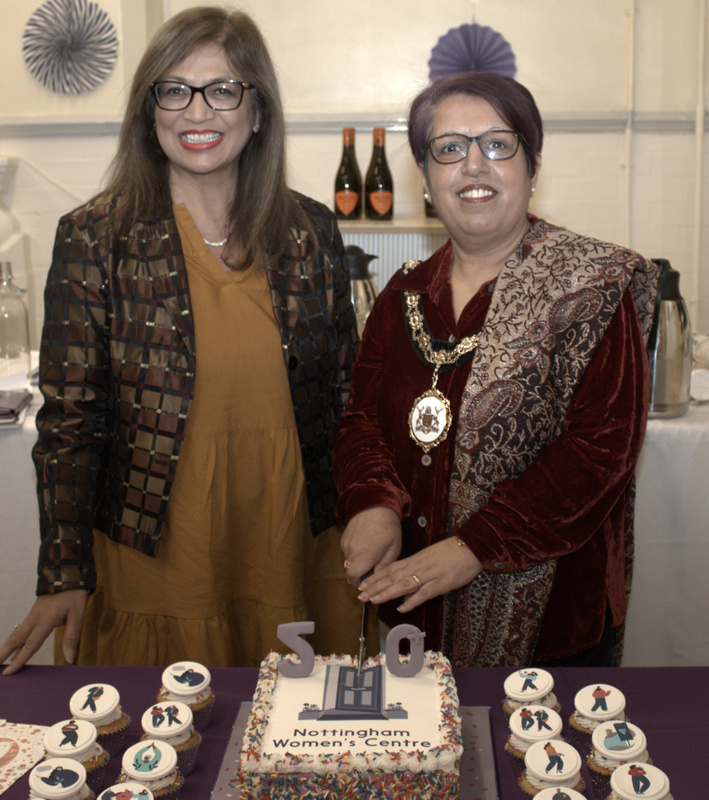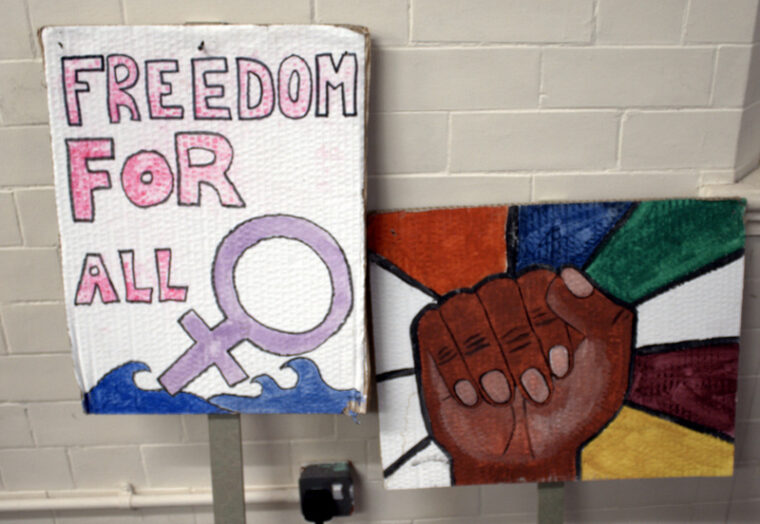
Welcome to our Spring 2025 campaign & policy update, highlighting the progress of our ongoing campaign work, significant achievements, as well as work our partners have been driving forwards.
1. What We Are Doing
- Prosecution and fines for School Non-Attendance and its impact on women
We have continued our campaigning on the issue of women being punished for their children’s school absences. At Nottingham Women’s Centre, we are deeply concerned by the increasing number of women coming through our casework service —often single mothers—who are being prosecuted for their children’s non-attendance at school. Many of these women are facing prosecution and heavy fines (up to £2,500) for the first time, which adds stress and hardship to already challenging circumstances. We are committed to lobbying for a more compassionate and supportive approach to tackling school attendance, one that recognizes the complex challenges parents and children face.
In September 2024, we co-signed a joint letter to the Secretary of State for Education, Rt Hon. Bridget Phillipson MP, led by Place2Be, calling for a whole school approach to wellbeing to make school cultures inclusive, with a focus on mental health.
From September to December 2024, with funding from Priority Education Investment Area (PEIA) Nottingham Attendance Project, we hosted a series of listening sessions with over 50 women in Nottingham, including those with experience of prosecution for this issue.
Next Steps:
Existing research and our ongoing engagement with women reveals that many children with severe attendance issues are often on long waiting lists for special educational needs provision or are in urgent need of mental health support. The issue of school attendance is complex, reflecting interwoven inequalities that demand a holistic, not punitive approach.
We will be publishing a report sharing insights from these listening sessions and with recommendations to address school attendance challenges and support for parents. To receive updates, email: ezinwanne@nottinghamwomenscentre.com.
- Women’s Health Matters
Our work on women’s health continues to grow, following on from our campaigns on endometriosis and the menopause, which saw our research with local women featured in the Women and Equalities Select Committee’s report on women’s health.
Women’s Health Matters aims to bring education, empowerment & awareness to women about their gynecological health and well-being. Through a series of workshops and events celebrating women’s bodies, together with partners, we’re breaking taboos, enabling conversation and equipping women to take control of their health.
2. What We Have Done
- Women’s health open day, September 2024
In September 2024, over 100 women gathered at our Women’s Health Open Day, part of Women’s Health Matters, a project funded by the Women’s Health Community Fund, run by Wellbeing of Women and Holland & Barrett. This event, which brought together sector partners from the NHS, University of Nottingham, and local women’s organisations, featured workshops on menopause, general gynaecological health as well as wellbeing activities such as laughter yoga, and BP checks. Highlights of the day included:
– Workshop on menopause with Menopause Handbag and a Q&A interactive session on gynaecological health with Dr. Sanya Kurmani.
– Wellbeing activities including meditation, laughter yoga, rock painting, blood pressure and anxiety checks. 100% of participants found the event incredibly beneficial. When asked about the most useful part of the event, a majority of women stated the sharing and networking with other women passionate about their health and wellbeing’.
- Raising awareness on vaginismus
In November 2024, we hosted an online panel discussion on Vaginismus, a condition that affects approximately 1 in 500 women. Vaginismus can significantly affect intimate relationships and a woman’s quality of life. In spite of affecting so many women, there is still very little awareness about this condition leaving many women without the support they need. The panel, featuring Dr. Leena Maddock Khan (Consultant Obstetrician and Gynaecologist, NHS Nottingham Trust) and Carmel McCarthy (Contraception & Sexual Health Lead Nurse, and founder of MACEY SRH), shed light on the impact of this condition, and informed women about available resources and local services to support women. Together, we will continue to break the silence around this critical gynaecological condition.
- Reclaim The Night
In October 2024, we joined forces with our partners, Notts Sexual Violence Support Services, Equation, and POW to lead Reclaim the Night – our annual march through the centre of Nottingham to raise awareness of violence against women and girls. Hundreds of women came together to demand safer streets and send a clear message to our leaders that residents and voters care about women’s safety. Find out more about Reclaim the Night.
- Advocacy with Nottinghamshire Police
On behalf of women across Nottinghamshire, Nottingham Women’s Centre submitted a response to the Nottinghamshire Police and Crime Plan Consultation. We urged the Police and Crime Commissioner to recognise and address violence against women and girls as a systemic issue that often begins with harmful language. Our submission called for the Police to commit to changing the culture around hate incidents and ensuring that interventions are gender-responsive, trauma-informed, and culturally appropriate
We also reiterated the recommendations made in our Nottingham Women’s Manifesto, which focus on community-driven solutions to tackle violence against women and girls in Nottinghamshire. This manifesto was developed in consultation with our Women’s Organisations Network, which consists of over 100 local women’s organizations, groups and services.
3. Issues On Our Radar
- Proposed changes to disability benefits
We know that the recent Government announcements about welfare reform, including the proposed changes to Disability Benefits and PIP are causing huge concern. Like many other organisations, we are worried about the impact this will have on local women and our clients. We are working on fully understanding the proposed changes as well as opportunities to influence these changes, and will keep you updated on our plans. In the meanwhile, remember that these are just proposals at this stage and there is no immediate change to people’s eligibility for benefits.
- Inconsistency in request for pre-trial therapy material
The Crown Prosecution Service guidance on pre-trial therapy emphasises that the sensitivity and confidentiality of therapy notes should be respected. Police should only request access to these notes in specific situations where:
a) They can show that it’s necessary to pursue a reasonable line of inquiry, after considering other options and respecting the victim’s privacy.
b) They can explain to the therapist why the information is needed, being clear about what exactly is required.
c)They only ask for the minimum amount of information needed to follow up on the inquiry.
We have observed some cases where police officers request information they are not entitled to, and it seems they are not fully aware of the correct procedures. We are monitoring the situation and will identify next steps.
- Women Against State Pension Inequality (WASPI)
The WASPI campaign continues to demand justice and compensation for the 3.6 million women who have been unfairly impacted by the rapid rise in the state pension age. These women—born in the 1950s—were not properly informed of changes first introduced in the 1990s, leaving many facing severe financial hardship and uncertainty. A recent poll showed strong public support for compensation for WASPI women, yet, despite clear recommendations from the Parliamentary and Health Service Ombudsman, the government remains reluctant to act. WASPI has now issued a “letter before action” to the Secretary of State for Work and Pensions, urging an urgent reconsideration of the Department’s refusal to provide the compensation these women deserve.
Our volunteers have started a local chapter of the campaign. You can get involved by emailing: nottinghamwaspi@gmail.com
4. From Our Partners
- Angolan Women’s Voice Association UK
The Angolan Women’s Voice Association is a community organisation dedicated to empowering the Angolan community through advocacy, outreach, and education. They leverage their expertise and lived experiences to help community members—especially those from non-English speaking backgrounds—achieve their goals and realize their full potential.
Through their work, they have identified critical challenges that many women in their community face. These include:
- Securing stable and flexible employment that accommodates parenting responsibilities.
- Supporting their children academically, especially when navigating behaviour challenges or unfamiliar educational systems.
- Accessing and understanding their rights and entitlements in the UK, particularly for those with limited English proficiency.
- Improving English language skills to foster greater independence and integration.
To tackle these issues, Angola Women’s Voice Association provides individualized support, signposts to available local resources, and hosts regular webinars addressing these and other pressing topics. These initiatives create safe spaces where women can learn, share, and find the support they need to overcome barriers.
However, as the demand for their services grows, Angolan Women’s Voice Association calls for increased funding to sustain and expand their programs, stronger partnerships with local services to ensure seamless support for women and their families as well as access to safe and welcoming community spaces to provide a consistent base for our work.
- British Red Cross
The British Red Cross is a lifeline for people in crisis, including women facing immense challenges due to insecure immigration status. A significant barrier for these women is the lack of access to legal advice and representation, a crisis exacerbated by the Legal Aid, Sentencing and Punishment of Offenders Act 2012, which drastically reduced the availability of legal aid. This gap has left vulnerable individuals, including: families on the brink of eviction, survivors of abuse seeking protection, and vulnerable people without the justice and support they need. The British Red Cross continues to advocate for the restoration of legal aid and access to justice to ensure no one is left behind.


